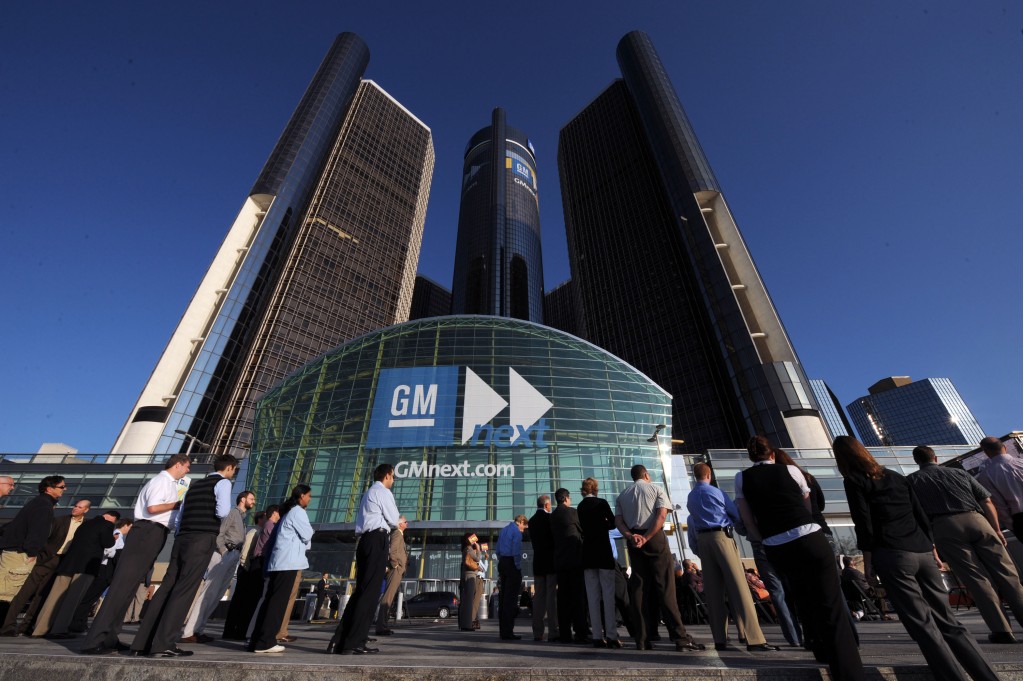It's now abundantly clear that Tesla has created the roadmap on how to build a widespread DC fast-charging network that lets electric-car drivers travel long distances, even across the country.
The Tesla Supercharger network can only be used by Tesla cars, however—and it remains entirely unclear how, whether, or when other carmakers will be able to offer similar capabilities.
Last Thursday, the U.S. Senate Energy and Natural Resources Committee held a "field hearing" at the Washington Auto Show, known for its focus on public policy that affects the auto industry.
DON'T MISS: Europe takes the lead in very fast electric-car charging
During that hearing, GM's director of advanced vehicle commercialization policy, Britta Gross, offered testimony commenting on the "opportunities and challenges General Motors sees facing advanced vehicle technologies, particularly electric, or zero emission, vehicles."
Gross set the stage by noting that GM had sold almost one quarter of the 200,000 plug-in electric vehicles delivered in the U.S. last year.
In her remarks, Gross focused on "two areas where your committee could help sustain continued growth: the first is consumer adoption and the second is aiding with charging infrastructure build-out."

General Motors Renaissance Center, Detroit, Michigan
On consumer adoption, she thanked the committee for helping to retain the $7,500 federal income-tax credit for purchase of a plug-in electric vehicle.
As for charging stations, Gross said more are required and that they must be "highly visible to consumers and ... drive consumer-confidence in the ability to drive EVs anywhere at any time."
How are those charging sites to be funded?
CHECK OUT: GM Won't Fund CCS Fast-Charging Sites For 2017 Chevy Bolt EV (Jan 2016)
The market requires "continued partnership between electric utilities, station operators, vehicle manufacturers, and support by federal, state and municipal government to establish charging stations at the same scale as the 168,000+ gas stations across the country," Gross said.
Notably missing from her remarks were any commitment by GM to contribute any funds toward those much-need charging stations.
That's not much of a surprise, as GM has consistently said for two years or more that it does not intend to spend its own money on providing charging infrastructure for the electric cars it sells.

BMW i3 and Volkswagen e-Golf electric cars using Combined Charging System (CCS) DC fast charging
That stands in contrast to makers that include BMW, Nissan, and Volkswagen, which have funded various U.S. initiatives to expand public charging along travel corridors, in public parks, and in their franchised dealerships.
Significant new electric-car charging infrastructure will also come from the Electrify America initiative, funded to the tune of $2 billion over 10 years by Volkswagen as part of its diesel emission scandal settlement.
Because that initiative is a subsidiary of VW Group, at least for the moment, and the terms under which drivers of other electric cars will get access to it aren't yet clear.
GM was hardly the only carmaker asking for government funding for zero-emission vehicle infrastructure, however.
As noted in an article on the hearing last week by The Washington Examiner, Toyota urged the panel to fund hydrogen fueling infrastructure for the fuel-cell vehicles it and Honda see as the zero-emission solution for the future.

2016 Toyota Mirai hydrogen fuel-cell car, Newport Beach, CA, Nov 2014
"To ensure the U.S remains competitive in this space," said Toyota's North American director of energy and environmental research, Robert Wimmer, "the federal government needs to take a much more proactive role supporting hydrogen infrastructure growth."
"Without robust federal support for hydrogen infrastructure, possibly part of a national infrastructure program," he said, "the numbers of fuel cell vehicles on our roads will remain modest."













